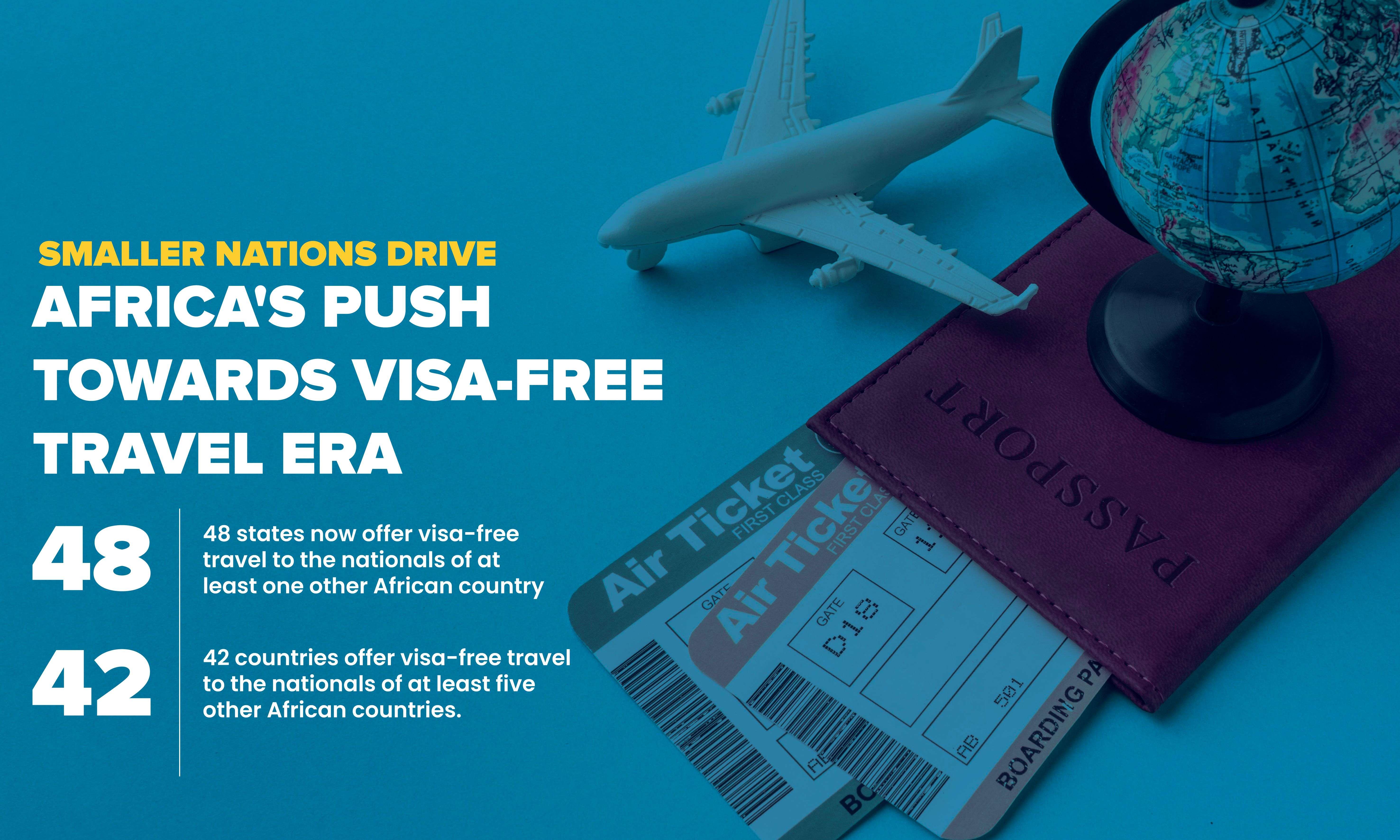More African states are liberalising travel for their peers, indicating a positive trend towards more open travel policies on the continent.

Seth Onyango, bird story agency
Africa is moving toward greater integration as more states make progress in their freedom of travel policies, the latest edition of the African Visa Openness Index (AVOI) reveals.
This comes on the back of a revived push for a single African air transport market, with an initial pilot involving seventeen African states to facilitate air mobility on the continent.
In a boost for African economies, AVOI figures show travel within the continent has become more open in 2022, with an even split between visa-free travel and travel where a visa can be obtained on arrival.
In the past year alone, 10 countries on the continent have improved their visa openness score, allowing more travellers to enter African countries without restrictions.
Benin, The Gambia, and Seychelles now offer visa-free entry to Africans from all other countries, whereas, in 2016 and 2017, only one country did so.
Twenty-four African states now offer an eVisa, five more than five years ago while 36 others have improved or maintained their Visa Openness Index score since 2016.
Furthermore, 50 countries have maintained or improved their score relative to 2021, often by removing some of the pandemic-induced visa policy restrictions implemented during the pandemic.
Most states—48—now offer visa-free travel to the nationals of at least one other African country, and 42 countries offer visa-free travel to the nationals of at least five other African countries.
Lower-income countries make up a large share of the top-20 ranked countries on the index with liberal visa policies, with 45% classified as low-income and a further 45% classified as lower middle-income.
The AVOI index analyses the visa requirements of each country on the continent and tracks changes in their scores over time.
Marie-Laure Akin-Olugbade, Acting Vice President, Regional Development, Integration and Business Delivery African Development Bank (AfDB) notes that Africa has made great strides towards returning to pre-pandemic normality in 2021–2022.
"The vast majority of countries eased restrictions on movement. Industries that bore the brunt of the pandemic—tourism, hospitality, and others—are rebounding, and travel has surged, both within Africa and around the world. The increase in travel is driven in large part by pent-up personal demand, but also by the realisation that many businesses depend on human movement, and that investment thrives on it,” she stated in response to the report.
The rise in visa-free travel and eVisa availability is seen as a promising development for Africans, who have historically faced significant barriers to travel within the continent.
The easing of restrictions is also positive for African economies, which stand to benefit from increased tourism, and gives impetus to the African Continental Free Trade Area (AfCFTA) which is gaining traction.
According to African Union Commission Deputy Chairperson Monique Nsanzabaganwa, the links between free movement and the development of regional value chains, investment, and trade in services are clear.
"There is greater recognition that human mobility is key to Africa’s integration efforts,” she said.
While there is still room for improvement, the trend towards more open travel policies is seen by analysts and agencies alike as a step in the right direction, coming at a time when Africa's post-COP recovery needs all the help it can get.
bird story agency





